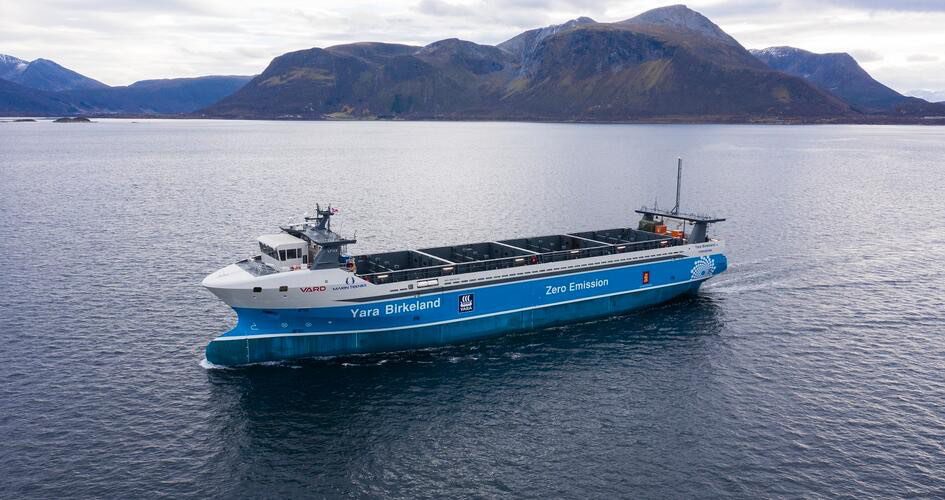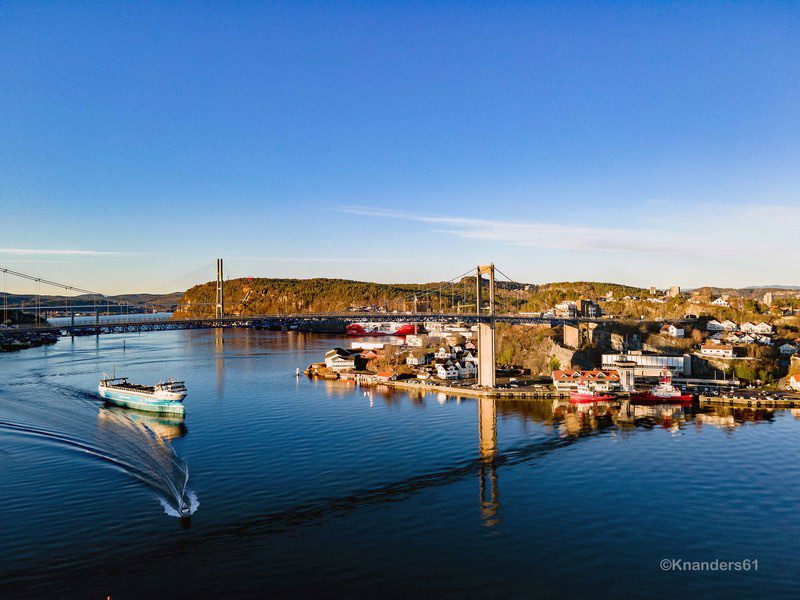The world’s first autonomous and zero-emission cargo container ship will make its maiden, crew-less voyage in Norway later this year – a journey that, if successful, could replace 40,000 cargo truck journeys each year, drastically reducing road freight emissions.
According to a report from CNN, the Yara Birkeland was designed by Norwegian chemical company Yara International – one of the world’s leading fertiliser companies, but one which has broadened its mission to sustainably feeding the world and protecting the planet.
Yara announced back in early 2017 that it would partner with Norwegian technology group Kongsberg to build the world’s first autonomous and electric container vessel. From the outset, Yara hoped that the vessel would reduce nitrogen oxides and carbon dioxide emissions, as well as improving road safety in a densely populated urban area.
A year later, Yara announced that Norwegian shipbuilding company Vard had been contracted to build the vessel, the Yara Birkeland. At the time, in mid-2018, hopes were that it would be ready for launch in early 2020 and would begin fully autonomous operation by 2022.
However, the global COVID-19 pandemic and developmental logistics delayed the launch. “We overestimated the scope of it in the beginning and started with too many activities in parallel,” said Jon Sletten, plant manager for Yara’s factory in Porsgrunn, Norway.
But the Yara Birkeland’s maiden voyage is expected to take place later this year, traversing the journey from the town of Herøya to Brevik, by way of the Frierfjorden fjord.
Capable of carrying between 100 and 120 cargo containers, the Yara Birkeland will be able to reach top speeds of 13 knots thanks to a 7MWh battery.
When operating regularly, Sletten expects that the autonomous electric vessel will be able to charge quayside “before sailing to container harbors along the coast and then back again, replacing 40,000 truck journeys a year” between Herøya to Brevik.
Backed by a NOK 133.6 million grant from the Norwegian Government enterprise Enova, the Yara Birkeland will replace emission-heavy cargo truck routes along the Eidanger peninsula.
“Every day, more than 100 diesel truck journeys are needed to transport products from Yara’s Porsgrunn plant to ports in Brevik and Larvik where we ship products to customers around the world,” said Svein Tore Holsether, President and CEO of Yara, speaking in early-2018.
“With this new autonomous battery-driven container vessel we move transport from road to sea and thereby reduce noise and dust emissions, improve the safety of local roads, and reduce NOx and CO2 emissions.”

The Yara Birkeland is not the world’s first autonomous seagoing vessel, but it will be the first electric autonomous vessel and could result in a sea change for freight transport.
Though, having already seen a manned cargo container block global shipping earlier this year after the Ever Givenran aground along the Suez Canal, one does wonder whether we are ready for autonomous cargo shipping – or whether we’re long overdue.
Joshua S. Hill is a Melbourne-based journalist who has been writing about climate change, clean technology, and electric vehicles for over 15 years. He has been reporting on electric vehicles and clean technologies for Renew Economy and The Driven since 2012. His preferred mode of transport is his feet.

